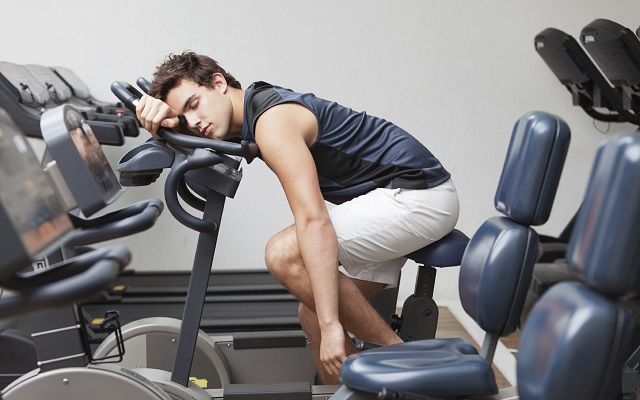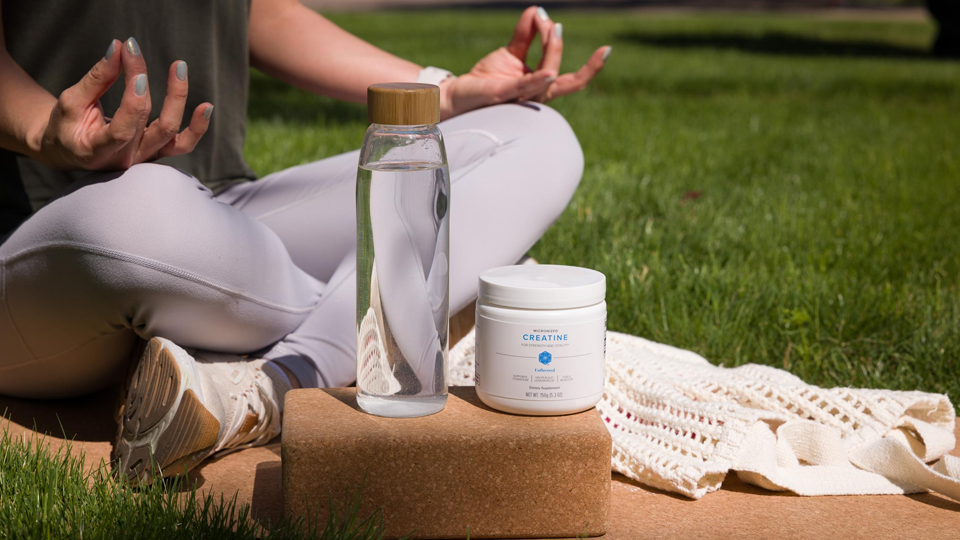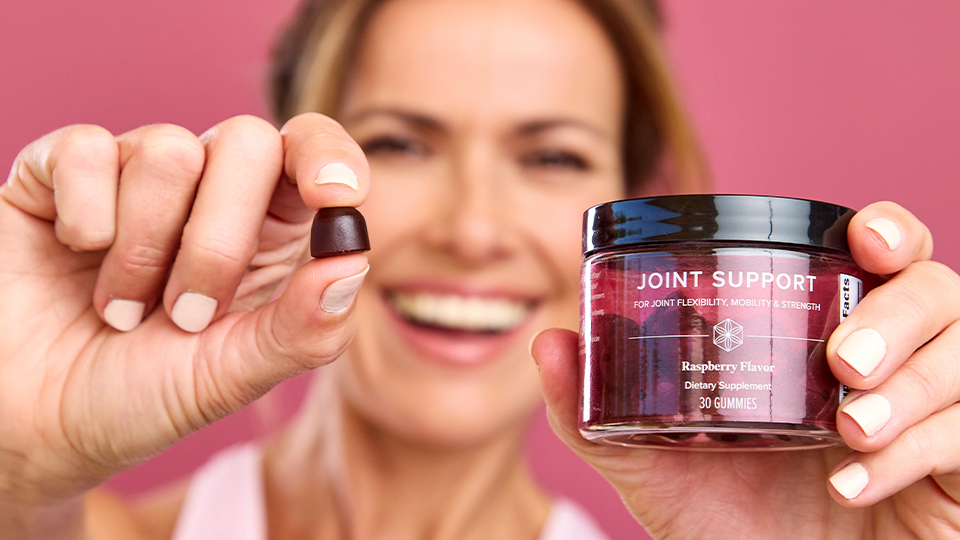Sleep for athletic performance is just as important as your training and nutritional program. Why? It’s because sleep is one of the strongest recovery mechanisms you have when it comes to intense training.
However, lack of sleep is a common problem among athletes who compete at a high level (1). Depriving yourself of sleep leads to poor performance, reduced motivation, and reduced cognitive processes, leading to low attention and concentration (2). Sleep deprivation can even affect how your body absorbs nutrients like carbohydrates and it can negatively alter your hormone levels and immune function (2).
Athletes should also consider that they generally need more sleep than the average person. Sleep recommendations for the average person are seven to nine hours of sleep per night, but athletes might require more depending on their level of training stress (3).
How does sleep help with recovery?
While you sleep, your body actually releases many important hormones like growth hormone and sex hormones that are essential to muscle repair, muscle building, fat loss, and bone growth (4).
Your brain’s pineal gland also releases melatonin during sleep that has a number of antioxidant properties (3). Melatonin release during several different phases of sleep—in conjunction with the neurotransmitter serotonin—is vital for proper physiological functioning and your body’s overall health.
How to Sleep Better with “The Stages of Sleep”
Five distinct stages of sleep involve different levels of consciousness and brain activity (5).
Stage 1: Before Stage 1 occurs and the onset of sleep begins, the body must be in a relaxed state for five to 20 minutes. Activities like watching TV or using cell phones before sleep can suppress melatonin release in the brain. It’s important to maintain a sleeping environment where there’s few possible chances for awakening to occur because of environmental changes. In summary, this means having comfortable bedding, minimal sound, and lights off.
Stage 2-4: Stage 2 lasts between 10 and 20 minutes, and is the beginning of actual sleep, followed by Stages 3 and 4. These are the deepest stages of sleep occurring for 30 to 40 minutes and largely the period wherein growth hormone is released (2).
Stage 5: After the last phase, Stages 3 and 2 are repeated before progressing directly to what’s called the “Rapid Eye Movement” phase or REM, which is the most active state of sleep. This process is repeated up to six times over the course of the night, contributing to sleep quality. A greater frequency and duration of REM experienced during total sleep is suggested to enhance recovery processes and lead to a more optimal wakefulness (5).
Does napping help performance?
In addition to extended habitual sleep at night, studies suggest that napping during the day is a useful tool to enhance recovery processes, especially for those who experience loss of sleep during the night (2).
Even small naps can aid in promoting optimal cognitive functioning to facilitate learning and performing skills within training and ensuring recovery of physiological mechanisms to avoid significant muscle inflammation and maintenance of the immune system (2). Extended sleep periods are ideal for athletic performance, but napping can help fill the gap when longer sleep isn’t possible (6).
How essential is more sleep to your athletic success?
Athletes require a greater volume of sleep for sufficient recovery to occur (1). In fact, young athletes who participate in a high volume of training are currently recommended a minimum of 10 hours of sleep each night—and there’s reason to believe that the same recommendation ought to apply to all elite athletes who participate in long training days, regardless of age (7).
At a minimum, athletes should sleep for at least seven hours a night, which is enough to avoid sleepiness during the following training day. Improving sleep quality reduces sleep lag and enhances transition through the sleep stages, promoting volume of REM sleep and therefore optimizing recovery and wakefulness (5).
What happens if you fail to get enough sleep? Sleep deprivation alone can contribute to poor performance. This is the result of reduced motivation and efficiency of cognitive processes, increasing perceived effort, and limiting physiological recovery responses.
Monitoring the quality and quantity of your sleep can help you detect poor sleep patterns or behaviors, allowing for immediate change. Use the checklist below to help ensure you’re doing everything you can to improve your sleep.
|
Checklist for Improved Sleep Quality (3) |
|
| Ensure dark room with no light source present | |
| Maintain a quiet environment | |
| Maintain a cool room temperature | |
| Ensure that bedding does not cause an environment that is too hot | |
| Form a sleep routine that is a consistent time each night | |
| Sleep at least seven hours a night | |
| Avoid caffeine and large amounts of food/fluid leading up to sleep | |
| Avoid the use of computer, tablet, and TV before sleeping | |
| Immediate face washing upon awakening | |
References
- Lastella M, Roach GD, Halson SL & Sargent C. Sleep/wake behaviours of elite athletes from individual and team sports. Eur J Sport Sci. 2015; 15(2):94-100.
- Halson SL. Sleep in elite athletes and nutritional interventions to enhance sleep. Sports Med. 2014 May; 44 Suppl 1:S13-23.
- Marshall GJ & Turner AN. The Importance of Sleep for Athletic Performance. Strength cond. 2016 Feb; 38(1): 61 – 67.
- Betts JA, Stokes KA, Toone RJ & Williams C. Growth-hormone responses to consecutive exercise bouts with ingestion of carbohydrate plus protein. Int J Sport Nutr Exerc Metab. 2013 Jun; 23(3):259-70.
- Walters PH. Sleep, the Athlete, and Performance. Strength cond. 2002 Apr; 24(2): 17 – 24.
- Waterhouse J, Atkinson G, Edwards B & Reilly T. The role of a short post-lunch nap in improving cognitive, motor, and sprint performance in participants with partial sleep deprivation. J Sports Sci. 2007 Dec; 25(14):1557-66.
- Scott WA. Maximizing performance and the prevention of injuries in competitive athletes. Curr Sports Med Rep. 2002 Jun; 1(3):184-90.





